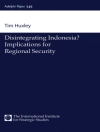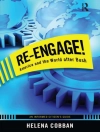Essays on the early disciplinary history of international relations.
What were the guiding themes of the discipline of International Relations before World War II? The traditional disciplinary history has long viewed this time period as one guided by idealism and then challenged by realism. This book reconstructs in detail some of the formative episodes of the field’s early development and arrives at the conclusion that, in actuality, the early years of International Relations were preoccupied not with idealism and realism but with the dual themes of imperialism and internationalism. Thus, the beginnings of the discipline have resonance with the recently revived discourse of empire and the global status and policies of the United States as the world’s sole superpower.
Innehållsförteckning
Preface
Introduction
David Long and Brian C. Schmidt
1. Francis Lieber, Imperialism, and Internationalism
David Clinton
2. Paul S. Reinsch and the Study of Imperialism and Internationalism
Brian C. Schmidt
3. Paternalism and the Internationalization of Imperialism: J. A. Hobson on the International Government of the ’Lower Races’
David Long
4. ’A Liberal in a Muddle’: Alfred Zimmern on Nationality, Internationality, and Commonwealth
Jeanne Morefield
5. Fabian Paternalism and Radical Dissent: Leonard Woolf’s Theory of Economic Imperialism
Peter Wilson
6. Internationalism and the Promise of Science
Jan-Stefan Fritz
7. Birth of a Discipline
Robert Vitalis
References
Contributors
SUNY Series in Global Politics
Index
Om författaren
Brian C. Schmidt is Assistant Professor of International Relations at the State University of New York at New Paltz. Prior to that, he was Visiting Assistant Professor in the Department of Political Science at the University at Albany, State University of New York.












